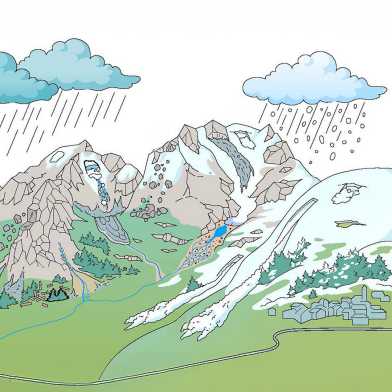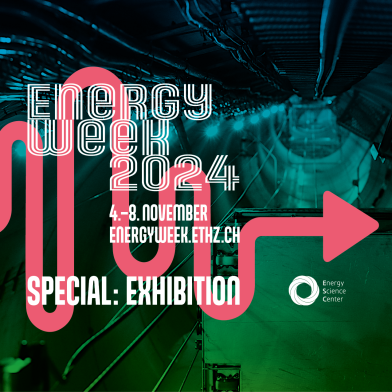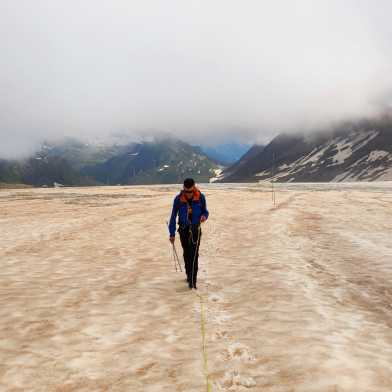October 2024
Climate change leads to more alpine hazards

From rockfall to ice avalanches: Climate change is intensifying natural hazards in the mountains in many places, posing particular challenges for the Alpine region. This is the result of a study jointly coordinated by glaciologist Mylène Jacquemart and permafrost expert Samuel Weber from ETH Zurich and the Swiss Federal Institute for Forest, Snow and Landscape Research WSL. The international team has evaluated more than three hundred scientific papers from the past three decades.
The future of energy: a look at Energy Week @ ETH 2024

With a varied programme and a public exhibition in the ETH main hall, this year's Energy Week from 4 to 8 November will not only highlight the challenges of the energy transition, but also present possible solutions. Three D-BAUG researchers are contributing to this year's programme: Professors Robert Boes, Eleni Chatzi and Adrienne Grêt-Regamey.
Time to say goodbye: MAS in Sustainable Water Resources

After 15 successful years, it is time to say goodbye to the MAS in Sustainable Water Resources (SWR) at ETH Zurich. The programme, dedicated to finding sustainable solutions to global water problems, has produced 86 graduates from 26 countries during this time – many of whom are now decision-makers shaping the future of water resources worldwide.
"Psychological safety is key to good cooperation and innovation"

In the keynote speech kicking off this semester's Respect programme, guest speaker Heidi Möller explains how important psychological safety is for teams to achieve top performance. Nadia Dörflinger-Khashman, Head of the Diversity and Cooperation Department, explains why we all benefit from this lecture.
Severe melting of glaciers despite heavy snowfall at high altitudes

After the extreme circumstances encountered in 2022 and 2023, no relief is in sight for Swiss glaciers. Despite exceptionally large volumes of snow during the winter, a combination of temperatures in July and August that at times reached record levels and dust from the Sahara resulted in a loss of 2.5 percent of the glacier volume. This was reported by the Swiss Commission for Cryosphere Observation of the Swiss Academy of Sciences led by Dr. Matthias Huss.